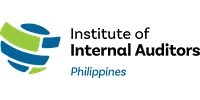Event Details
How to Assess Work Engagement Plan
Focus and Features
Internal auditors can still be productive and continue to learn despite of the COVID 19 pandemic. The times are difficult, but internal audit's potential contribution is enormous. With requirements for social distancing, e-learning is the next best option to capacitate internal auditors'competence.
Objectives:
At the end of the 3-hour session, participants will learn to:
- Perform an adequate and effective assessment of Internal Audit's engagement planning process and engagement plans and
- Document the assessment
What You Will Learn
Introduction
- The IIA's Mandatory Guidance
- Overview of Engagement Planning
Assessing the Engagement Planning Process
- Preliminary Survey
- Risk & Control Assessment
- Engagement work program
- Supervision
Assessing the Engagement Plan
- Assessment of the business perspective
- Assessment of the risk(s) for audit
- Selection of the audit objective
- Selection of the audit procedures
Documenting the assessment
Work Activity (Homework)
Summary and Conclusion
Remote Auditing: Adapting to the New Normal
Focus & Features
The COVID-19 crisis has compelled most organizations to adapt quickly to new ways of doing things, and extraordinary times require extraordinary leadership. Internal Auditors now faces the challenge on how we can deliver audit results as embodied in our annual audit plan.
With shelter-in-place orders and social distancing currently in effect, remote audits offer a way to protect your staff and your auditors while fulfilling your audit requirement.
Remote audits are a valid tool as part of a larger internal audit program, while they do not typically save time on the actual audit, they can save travel time and costs for an organization. They can also be more flexible with the committed audit team time (Auditor and Auditee).
The main objectives of this training are as follows:
- Identify the considerations in conducting remote audit
- Differentiate onsite (face to face audit) vs. remote audit
- Understand how to plan, lead, conduct and properly document a remote audit
- Understand the risks and potential pitfalls of remote audit
- Determine the advantages and limitations of remote audit
Through team exercises, group discussions, case studies and lectures, attendees will gain a foundation of knowledge that will allow Internal Auditors to perform remote audits properly. A basic understanding of the roles of risks and internal controls will also be stressed, along with interpersonal and team-building skills.
What You Will Learn
I. Introduction to Remote Auditing
II. Key Considerations in Remote Audit
- Feasibility
- Risk Assessment
- Use of information and communication technology
III. Planning Remote Audit Engagement
- Scoping
- Schedule
- Audit Tools
- Auditor's Competence and Skills
- Remote audit vs. Onsite (Face to Face) audits
IV. Conducting Remote Audit
- Document Review
- Site Reconnaissance
- Remote interviews
- Working Paper review remotely with use of CAATS
V. Communicating Audit Results
- Closing Meeting
- Findings and Action Plan
VI. Lessons Learned: Advantages and Limitations of Remote Auditing
VII. Case Studies/ Exercises
VIII. Seminar Conclusion
- Plan for Action





